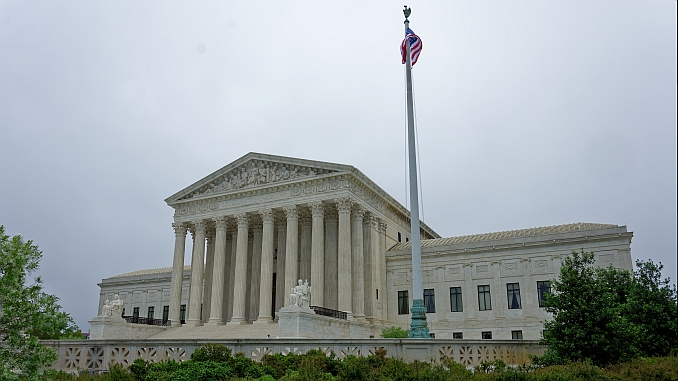
Our system does not permit agencies to act unlawfully even in pursuit of desirable outcomes.
United States Supreme Court – August 26, 2021
So wrote Chief Justice Roberts in the majority opinion on August 26, 2021 in the case of Alabama Association of REALTORS® v Department of Health and Human Services.
The CDC Rental Eviction Moratorium has undergone changes and from the beginning there was concern from many that an agency, with unelected bureaucrats, could suddenly for their own reasons essentially seize private property, disrupt private contract and impose nationwide mandates far exceeding laws passed by Congress and signed by a President.
Here is a brief timeline of the CDC Rental Eviction Moratorium actions to refresh your memory:
March 27, 2020: Coronavirus, Relief and Economic Security Act (CARES) signed into law. As part of the CARES Act, Congress authorized a 120-day rental eviction moratorium on all properties receiving federal assistance.
July 24, 2020: CARES Act Rental Eviction Moratorium expires
Dec. 27, 2020: Congress extends CARES Act Moratorium 30 days to Jan 31, 2020
Jan. 29, 2020: CDC unilaterally extends rental eviction moratorium to March 31,2021
March 29, 2021: CDC extends the rental eviction moratorium to June 30, 2021
May 5, 2021: D.C. Circuit Court of Appeals vacates CDC rental eviction moratorium in
Alabama Assoc. of REALTORS® v HHS
May 14, 2021: Dept. of Justice appeals decision of D.C. Circuit Court of Appeals. The Court issues a stay pending appeal
June 2, 2021: Alabama REALTORS® requests the D.C. Circuit Court of Appeals vacate the stay. Court declines to vacate the stay
June 24, 2021: CDC extends rental eviction moratorium to July 31, 2021. CDC states this is the final extension of the rental eviction moratorium. Alabama Assoc. of REALTORS® request Supreme Court vacate the stay
June 24, 2021: The White House announces plans to distribute Emergency Rental Assistance and tools for State and local government to use to help distribute funds as well as tools for renters based on July 31 expiration of CDC rental eviction moratorium
June 29, 2021: Supreme Court declined to vacate the stay based on CDC’s representation that the extension would expire on July 31st with no additional extensions
Aug 2, 2021: White House announces CDC Director Walensky cannot find legal authority allowing CDC to declare another rental eviction moratorium
Aug. 3, 2021: CDC issues a new rental eviction moratorium to Oct. 3, 2021
Aug. 4, 2021: Alabama Assoc. of REALTORS® files an Emergency Motion to Enforce the Supreme Court’s Ruling and to Vacate the Stay Pending Appeal
Aug. 13, 2021: D.C. District Court of Appeals declines to lift the stay while agreeing with the Plaintiffs that the stay was not warranted. Page 17 of document
Aug. 20, 2021: Alabama Assoc. of REALTORS® files its Emergency Motion to Enforce the Supreme Court’s Ruling and to Vacate the Stay Pending Appeal at the Supreme Court
Aug. 26, 2021: Supreme Court rules in favor of Alabama REALTORS®
At the heart of the Supreme Court and D.C. District Court of Appeals decisions in favor of the Alabama Association of REALTORS® position was the 1944 law extending health officials powers to protect the public from severe disease.
The CDC in granting itself broad powers relied on the first sentence of a two-sentence paragraph granting federal health officials powers to limit the spread of disease through fumigation, quarantine, pest extermination, sanitation and other actions used to directly address the physical disease. Never before has the 1944 Public Health Services Act been used to impose a nationwide eviction moratorium.
“The Surgeon General, with the approval of the [Secretary of Health and Human Services], is authorized to make and enforce such regulations as in his judgment are necessary to prevent the introduction, transmission, or spread of communicable diseases from foreign countries into the States or possessions, or from one State or possession into any other State or possession. For purposes of carrying out and enforcing such regulations, the Surgeon General may provide for such inspection, fumigation, disinfection, sanitation, pest extermination, destruction of animals or articles found to be so infected or contaminated as to be sources of dangerous infection to human beings, and other measures, as in his judgment may be necessary.”
See 58 Stat. 703, as amended, 42 U. S. C. §264(a).
When the Alabama Association of REALTORS® returned to the Supreme Court with their emergency petition they pointed out the CDC would likely not succeed in their position granting themselves authority since in June Justices Thomas, Alito, Gorsuch and Barrett would have immediately vacated the stay and Justice Kavanaugh’s concurring opinion incorporated his agreement that the CDC had overreached its authority.
They additionally pointed out that while vaccine distribution and rental assistance had been approved and improved mitigating any need for a nationwide eviction moratorium based on disease control, the harm to landlords was increasing.
The Alabama Association pointed out that the CDC had determined that landlords should bear the financial cost of the pandemic, but most property owners don’t have the means to shoulder that burden. Importantly, the ability to evict tenants who breach the rental contract is fundamental to private property rights and the right to exclude.
The CDC maintained that their authority came from curtailing interstate disease transmission through the conjecture that if evictions occurred, a subset of some evicted people might locate to another state, and a subset of those people might be infected.
The Court further noted that the scope of CDC’s claim means that they alone, based on no facts but only their own conjecture as they deem “necessary”, can unilaterally mandate other actions such as free grocery delivery, require manufacturers to provide free computers or other very expansive powers. Additionally, the CDC imposed a criminal penalty also without authority.
In the end the Supreme Court re-emphasized the requirement that such broad, nationwide limitations on people and their property should be authored by Congress.
